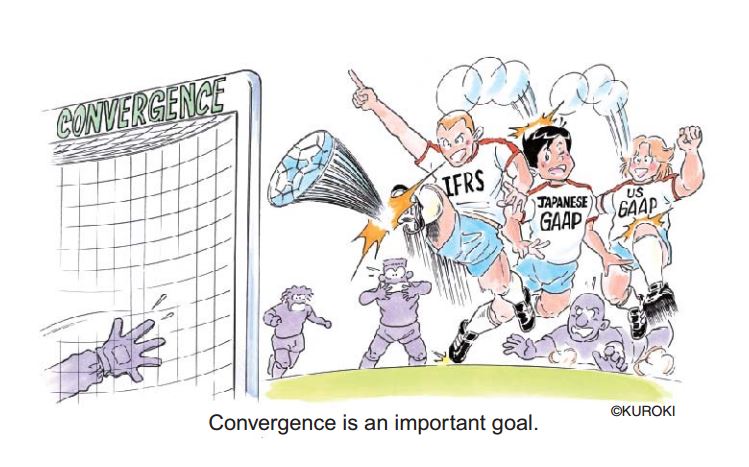
Concepts of United States Accounting :
In America, accounting standards are governed by the FASB (Financial Accounting Standards Board). FASB is not-for-profit organization whose primary purpose is to develop generally accepted accounting principles (GAAP) within the United States in the public’s interest. But The U.S. SEC underpins the authority of its standards.
SEC (Securities and Exchange Commission) is a federal agency which holds primary responsibility for enforcing the federal securities laws and regulating the securities industry, the nation’s stock, exchanges, and other securities markets in the United States. The SEC has the legal authority to prescribe accounting and reporting standards for public companies but the private sector has the authority to set its own standards.
Concepts of Japanese Accounting :
Japanese accounting is impacted by religions and their local cultures. Accounting is a product of its cultural environment. Accounting practices evolve within a country in order to meet the needs of their particular society. So we need to understand the cultures, business practices, and history of their country. Culture is not only found in the accounting practices of an organization in Japan, but is also found in the daily activities of a company. Culture permeates every aspect of an entity and very significant to its operations. It affects employee’s general behaviors, such as performance and motivation.
The group consciousness, and corporate relationships in Japan contrast with the independent in Western nations. Japanese companies hold equity interests in each other, and often jointly own other companies. These investments yield giant industrial also known as keiretsu. Keiretsu groups are defined as clusters of independently manage firms maintaining close and stable economic ties. The term of keiretsu has been applied to a variety of Japanese intercorporate networks.
There are three different regulations which prescribe financial accounting and reporting in Japan (the Commercial Code, the Securities and Exchange Law, and the Corporate Income Tax Law). These three laws are affected each other, interrelated in their accounting objectives and often referred to as “The Triangular Legal System”.
- There are many striking contrasts between American and Japanese accounting practices such as:
U.S. companies more often use standard costs, while Japanese companies more frequently use actual costs. The primary purpose of using standard costs is similar in both countries, for cost control and pricing. One apparent difference is that U.S. company use standard costs more for inventory valuation purposes.


Business Combination :
- Basic Method :
U.S. : US GAAP prohibit “Pooling of interests method” and only “Purchase method” is permissible and applied to all business combinations. Gaining such an advantage using “Pooling of interest method” would be prohibited from a critical standpoint.
Japan : Under Japanese GAAP, “Pooling of interests method” is applied under certain extremely specific conditions in consideration of the international trends in accounting standards.
- Goodwill :
U.S. : Goodwill is not amortized but be tested for impairment regularly. Some believe FASB eliminated amortization to make purchase accounting techniques more appealing to corporate America. Negative goodwill will be written off at once when negative goodwill arises.
Japan : Goodwill is strictly amortized within 20 years based on the straight-line method. The negative goodwill is recorded as a liability and will be amortized and added to income for a period under 20 years in the same way as the positive goodwill.
Bibliography :
Choi, Frederick D.S. and Meek, Gary K. 2010. International Accounting. Edisi Keenam. Jakarta: Salemba Empat.
Shields, Michael D.; Chee W. Chow; Yutaka Kato; Yu Nakagawa. Spring 1991. Management Accounting Practices in the U.S. and Japan – Comparative Survey Findings and Research Implications. Journal of International Financial Management & Accounting. pp. 61 – 77
Young, Meredith. Spring 2013. Cultural Influences on Accounting and Its Practices. Liberty University. http://digitalcommons.liberty.edu/cgi/viewcontent.cgi?article=1396&context=honors viewed on March 13, 2016
Zebua, F. 2008. Akuntansi Internasional. Jakarta: Penerbit Mitra Wacana Media.
Are Western Firms Ready to Apply Japanese Practices? http://ivythesis.typepad.com/term_paper_topics/2008/02/are-western-fir.html viewed on March 17, 2016
Chapter 4 – Comparative Accounting – The Americas and Asia http://ebook.nscpolteksby.ac.id/files/Ebook/Accounting/INTERNATIONAL%20ACCOUNTING%20(2011)/Chapter%204%20-%20Comparative%20Accounting-%20The%20Americas%20and%20Asia.pdf viewed on March 17, 2016
Envolving Japanese GAAP – High Quality Accounting Standards : http://www.iasplus.com/en/binary/resource/0404japanequivalence.pdf viewed on March 18, 2016